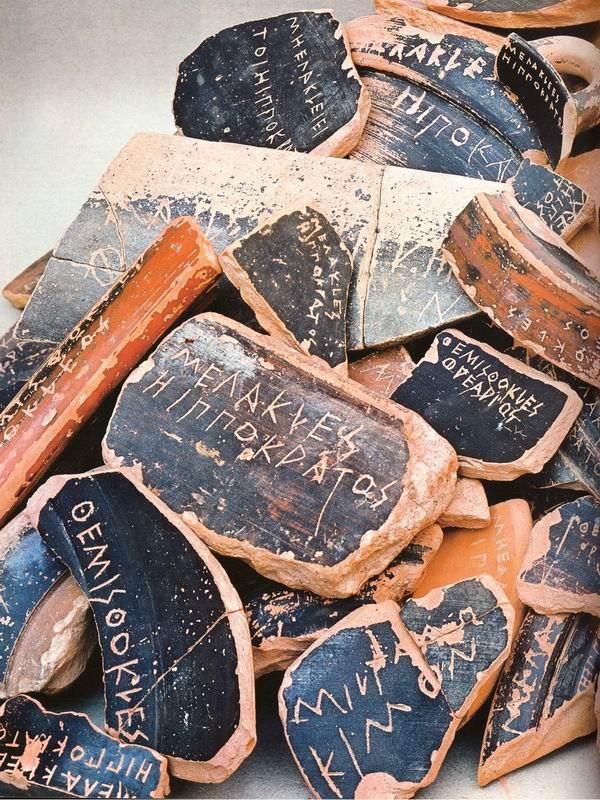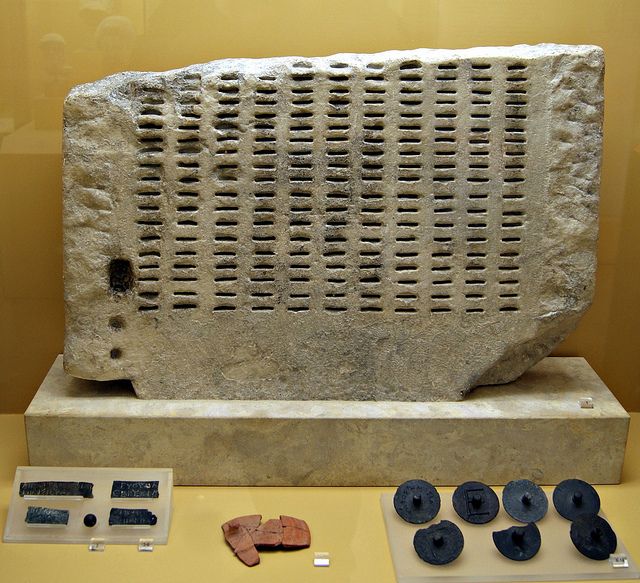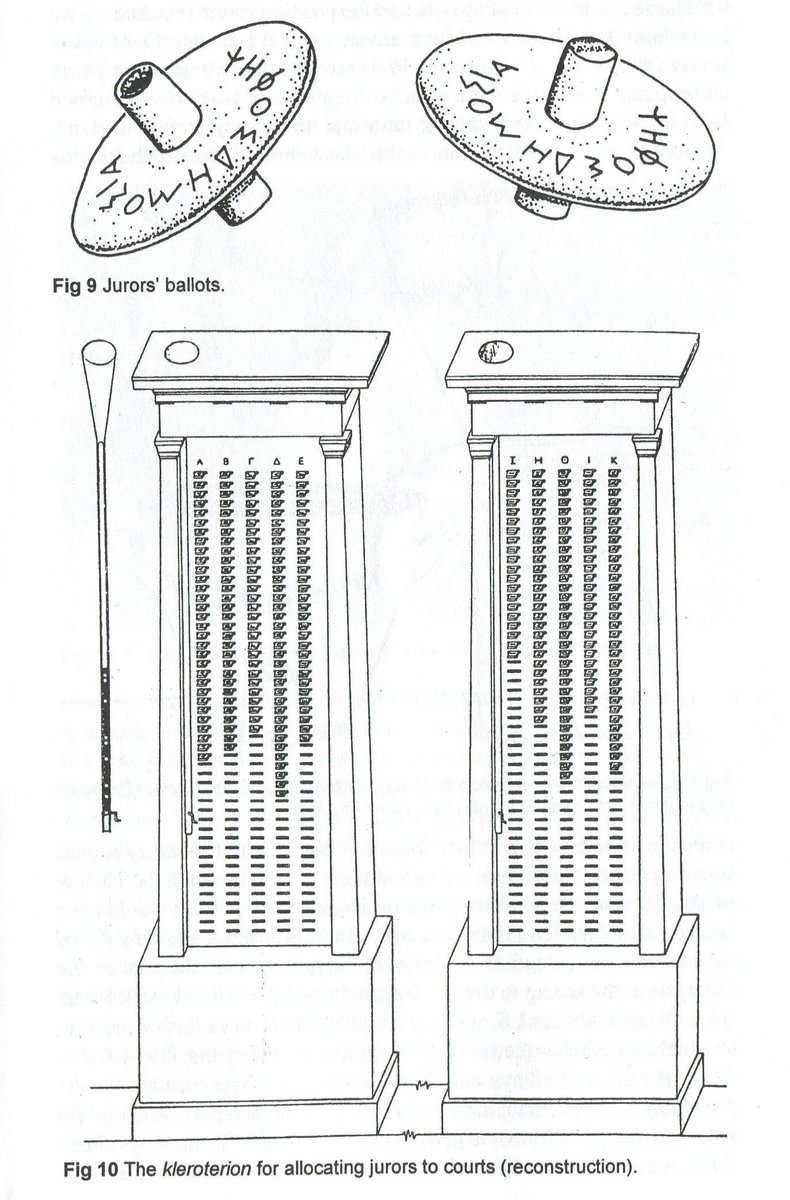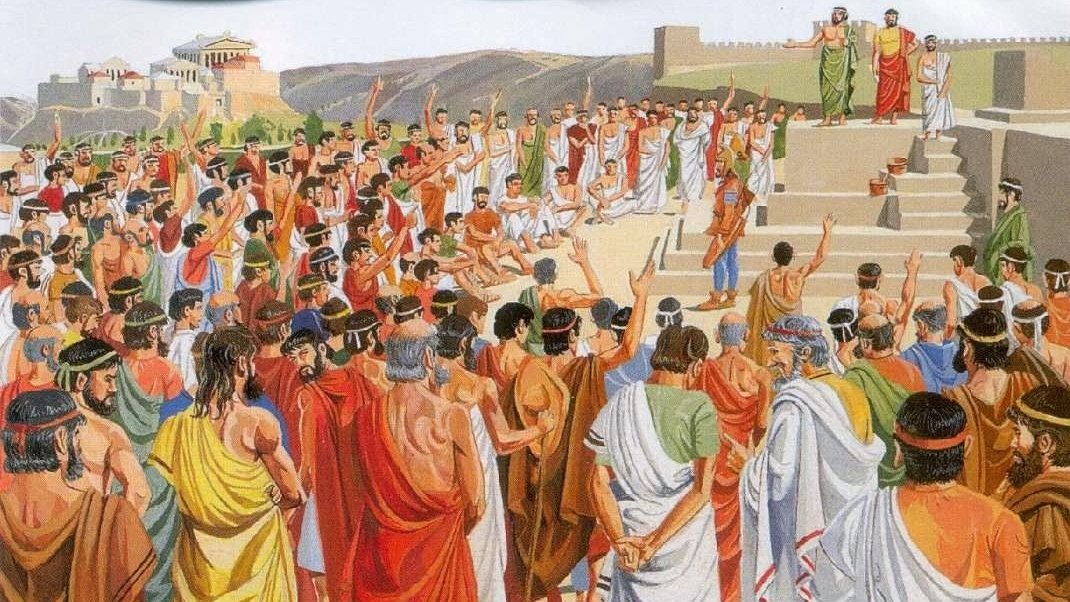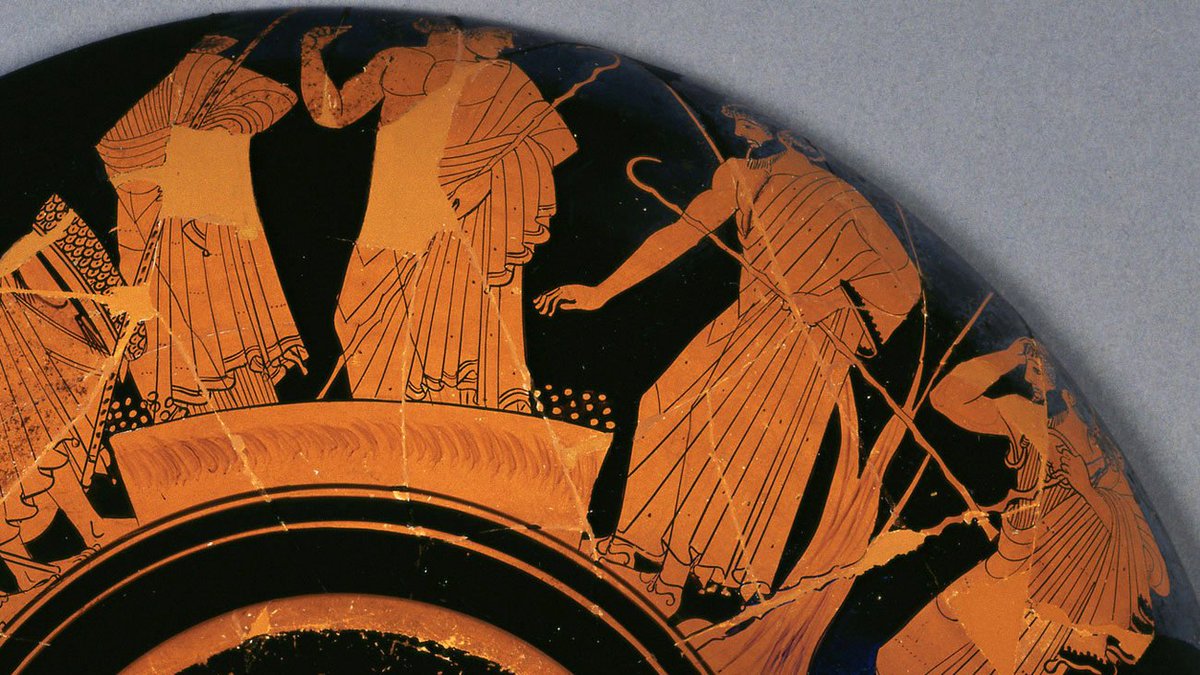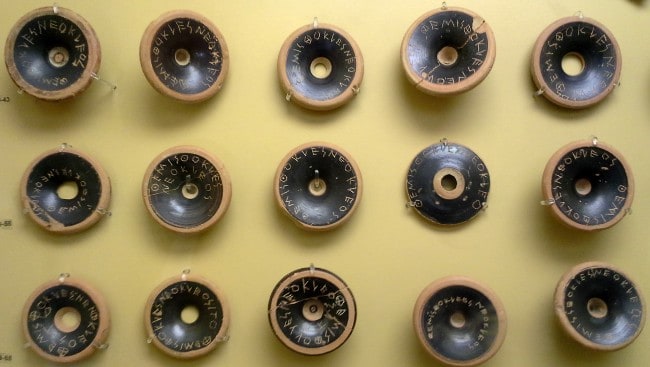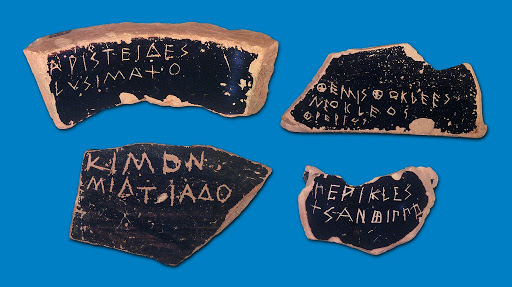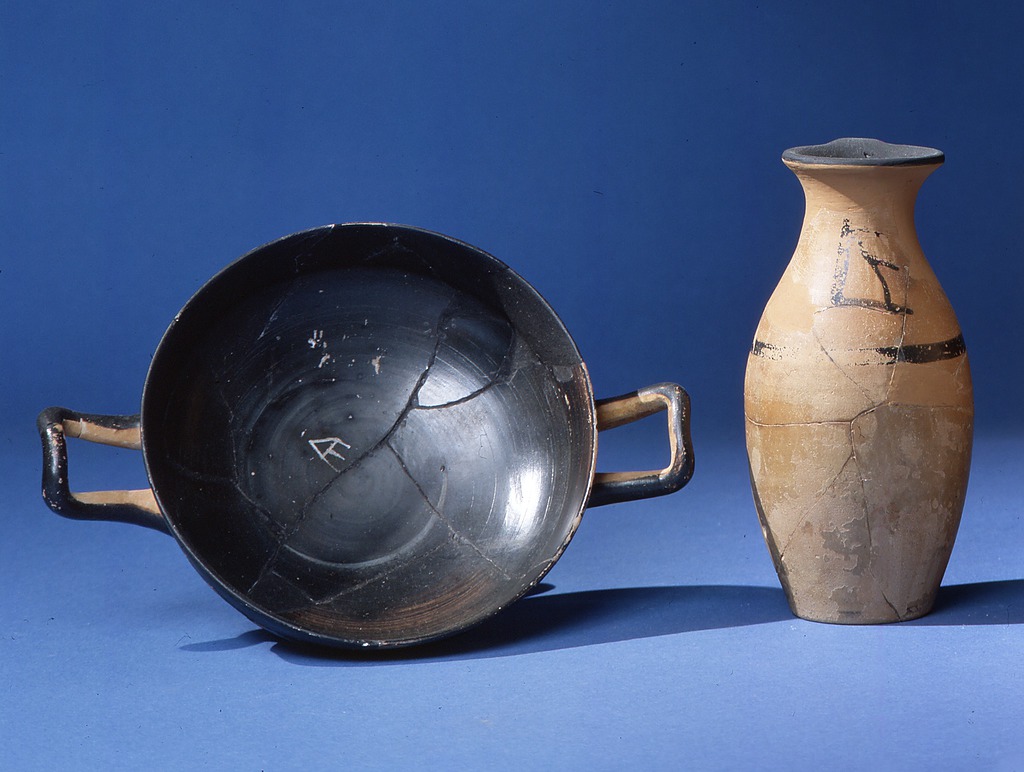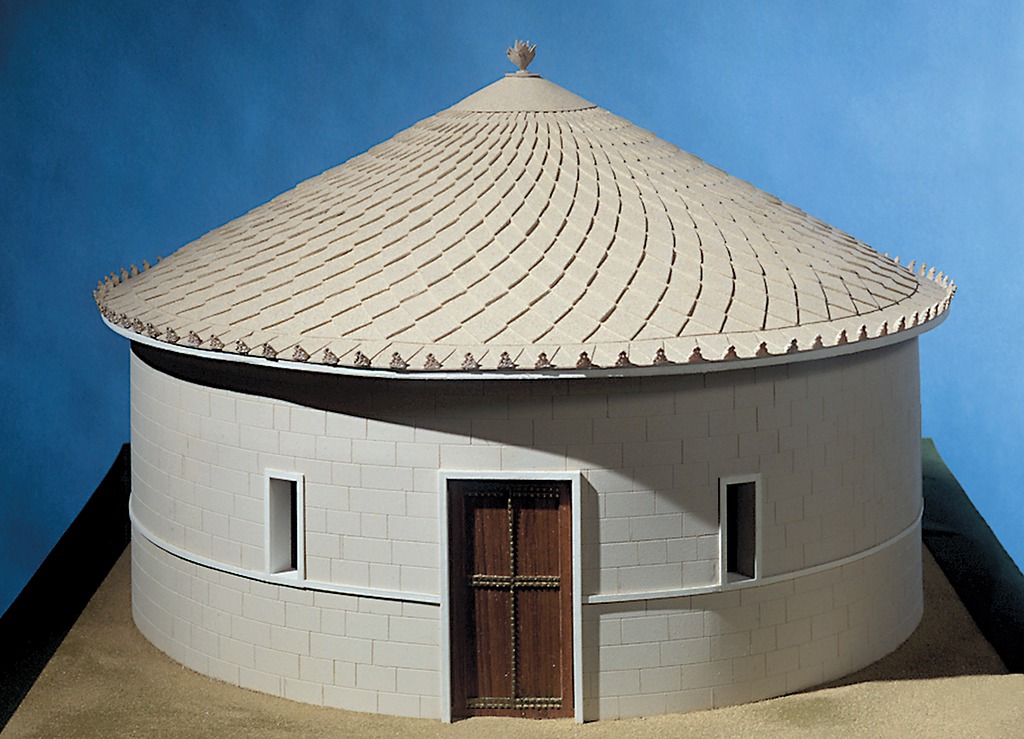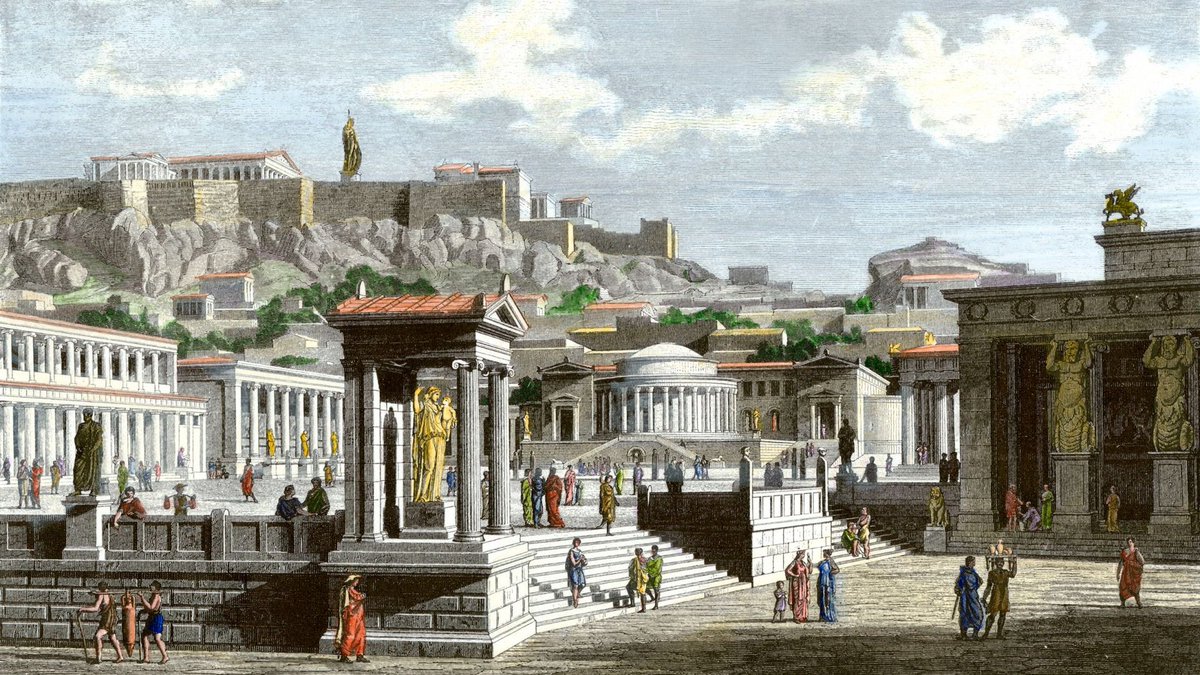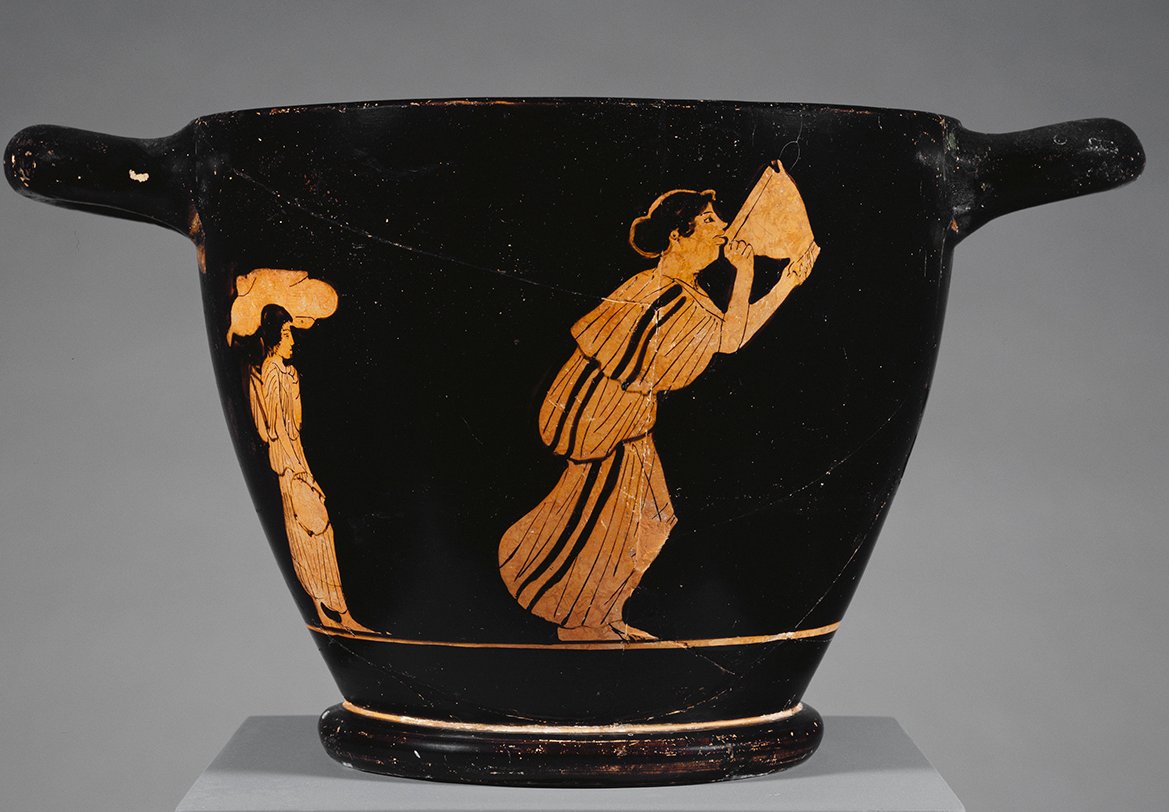if hungover, rowdy, electricity-less ancient Athenians could do it 2,500 years ago, so can you: a #thread on ancient democracy.
#VOTE #democracy #classics #Archaeology #ancienthistory #Elections
#democracy #classics #Archaeology #ancienthistory #Elections  #Government
#Government
#VOTE
 #democracy #classics #Archaeology #ancienthistory #Elections
#democracy #classics #Archaeology #ancienthistory #Elections  #Government
#Government
5th cent Athenians used a system called 'sortition' (election by lot) to randomly select those who would serve in their democracy. Citizens would place a bronze ticket with their name into a slot of the ‘Kleroterion,’ or stone voting box. Here's one from the Agora Excavations.
The Kleroterian made use of colored balls or pebbles (this process remains a little unclear to me) to randomly select a single row or column on the box. Those who had placed their ticket in that row or column would be called in for duty.
#democracy #Archaeology
#democracy #Archaeology
Citizens selected through lot underwent examination called 'dokimasia' to avoid incompetence. Magistrates, also selected via sortition, were monitored by the assembly & provided accounts of their time in office. Any citizen could request the suspension of a magistrate with cause.
Here we can see voting with psephoi (pebbles) in a scene from a wine cup in the @GettyMuseum (Inv. http://86.AE .286)
& more kleroterion action here:
https://twitter.com/DrJEBall/status/1205238713627881474
& more kleroterion action here:
https://twitter.com/DrJEBall/status/1205238713627881474
The ancient Greeks also relied on a process called #ostracism to preserve democracy. Once a year, citizens could identify figures who threatened their gov. They did this by writing the person's name on a piece of broken pottery called an 'ostrakon.' Here's what they look like:
The ostraka (pottery fragments with names of problematic citizens) would be collected & counted by officials. If enough number of votes were cast against one person, they would be banished or 'ostracized' from Athens for 10 years!
Here's a helpful video about #ostracism for kids! https://www.nationalgeographic.org/media/ostracism-ancient-greece/
How did the ancient #Greeks force each-other to show up and participate in their democracy? There is archaeological evidence that officials were provided with food and wine at public expense. (grad students will be familiar with this tactic)
State tableware, ancient vs. modern:
State tableware, ancient vs. modern:
In exchange, at least 17 of the 500 senate members spent the night in the Tholos, a gov building, so that they would be available in an emergency. There were members of the ancient democracy on call 24/7 (vs. the average US senator who makes $174k and goes to work 133 days/year)!
Another tactic (and personal favorite of mine) was the use of shame-inducing red stained ropes. Those who loitered in the Agora would be herded with this ropes to attend the meetings of the assembly. Anyone with red-stained clothes who was not in the meeting had to pay a penalty.
Of course, ancient Greek democracy was not perfect! Only land-owning men could participate + the apparatus of state relied on unpaid slave labor. Also worth noting that the ancient greek democracy also temporarily collapsed after a plague in 430 BCE. https://www.newyorker.com/culture/culture-desk/the-athenian-plague-a-cautionary-tale-of-democracys-fragility
Even so, there's probably something to be learned from our ancient predecessors: Show up. #VOTE  . Hold others accountable.
. Hold others accountable.
And if you've done your part, have a glass of wine after! This woman ca 460 BCE get it (pictured on a skyphos, Getty Inv. http://86.AE .265)
 . Hold others accountable.
. Hold others accountable.And if you've done your part, have a glass of wine after! This woman ca 460 BCE get it (pictured on a skyphos, Getty Inv. http://86.AE .265)

 Read on Twitter
Read on Twitter